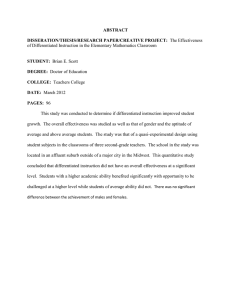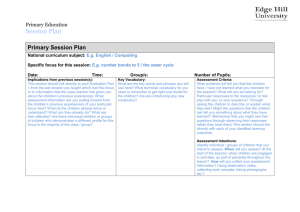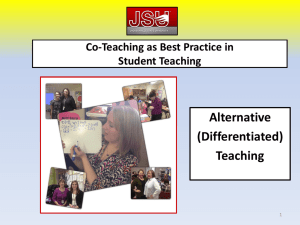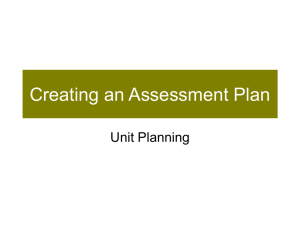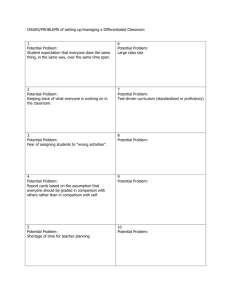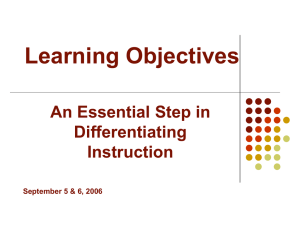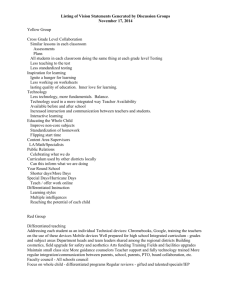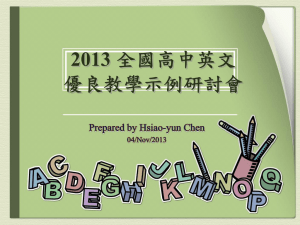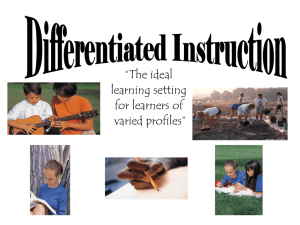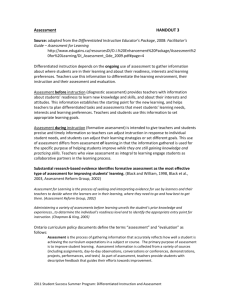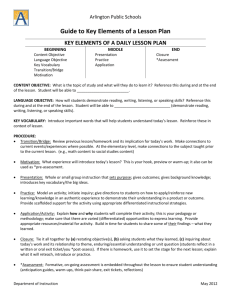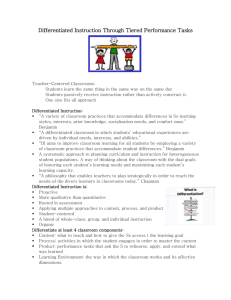DI study guide 2014 JS
advertisement
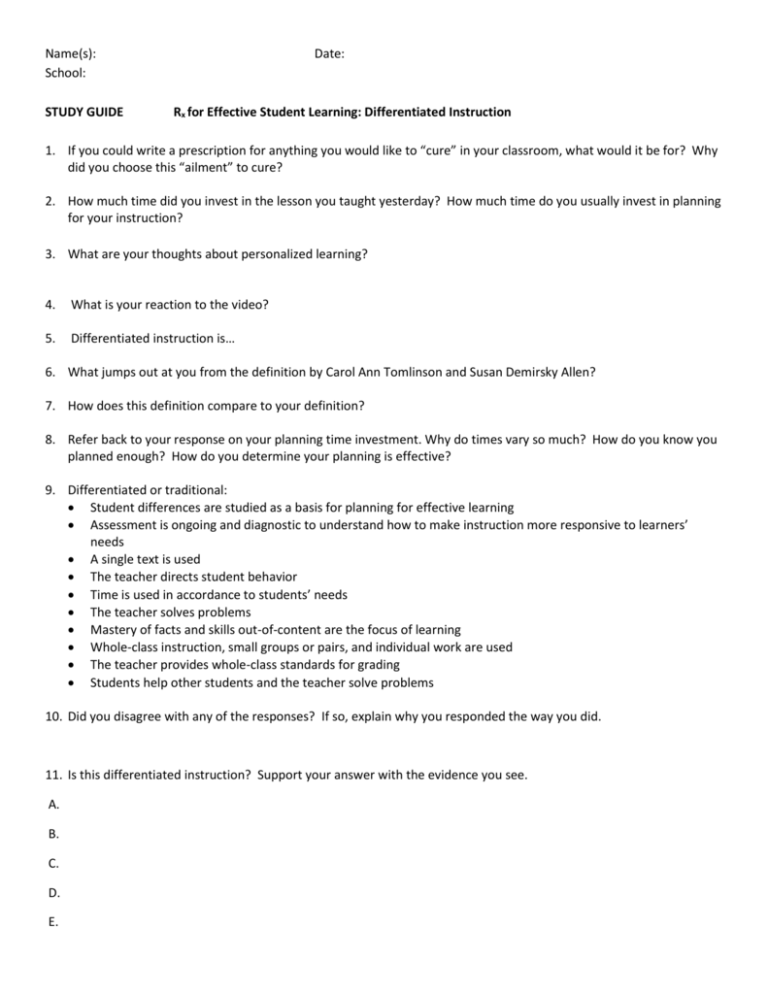
Name(s): School: STUDY GUIDE Date: Rx for Effective Student Learning: Differentiated Instruction 1. If you could write a prescription for anything you would like to “cure” in your classroom, what would it be for? Why did you choose this “ailment” to cure? 2. How much time did you invest in the lesson you taught yesterday? How much time do you usually invest in planning for your instruction? 3. What are your thoughts about personalized learning? 4. What is your reaction to the video? 5. Differentiated instruction is… 6. What jumps out at you from the definition by Carol Ann Tomlinson and Susan Demirsky Allen? 7. How does this definition compare to your definition? 8. Refer back to your response on your planning time investment. Why do times vary so much? How do you know you planned enough? How do you determine your planning is effective? 9. Differentiated or traditional: Student differences are studied as a basis for planning for effective learning Assessment is ongoing and diagnostic to understand how to make instruction more responsive to learners’ needs A single text is used The teacher directs student behavior Time is used in accordance to students’ needs The teacher solves problems Mastery of facts and skills out-of-content are the focus of learning Whole-class instruction, small groups or pairs, and individual work are used The teacher provides whole-class standards for grading Students help other students and the teacher solve problems 10. Did you disagree with any of the responses? If so, explain why you responded the way you did. 11. Is this differentiated instruction? Support your answer with the evidence you see. A. B. C. D. E. F. G. H. I. J. K. 11. Have you used any of activities or strategies listed? What was the outcome? 12. Have you tried any of these ideas? What were the results? 13. If you use any of the activities or strategies on the previous two slides, does that guarantee effective differentiation? What is the difference between being creative and implementing effective differentiated instruction? 14. How does this compare this definition you wrote down at the start of this session? What changes would you make now? 15. What assessments do you use? How do you use assessments to guide instruction? 16. How do you achieve these two points on a regular basis in your teaching? 17. Share your thoughts on the points in the slide. 18. What are your thoughts? 19. What would you add to this list? 20. What teaching strategy brings the biggest challenge to you? 21. How will you remember to use the wiki resources? 22. How do you systematically assure that your assessment matches your learning objectives? What do you do when the students do not reach mastery? What do you do with the students who already know what you are teaching? 23. What formative assessment will you use in your next lesson? 24. Share why you use the type of summative assessment that you tend to be most comfortable with 25. I want to differentiate but… 26. How might differentiated instruction impact the student described above? 27. What are you seeing as your next steps? What additional resources do you need? 28. Pluses: Deltas:
